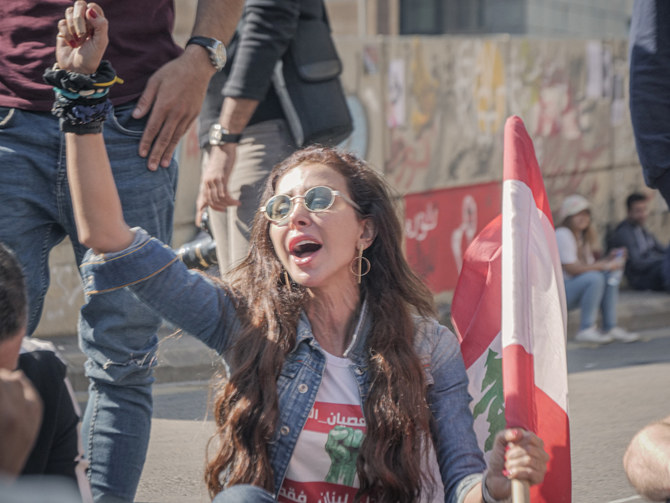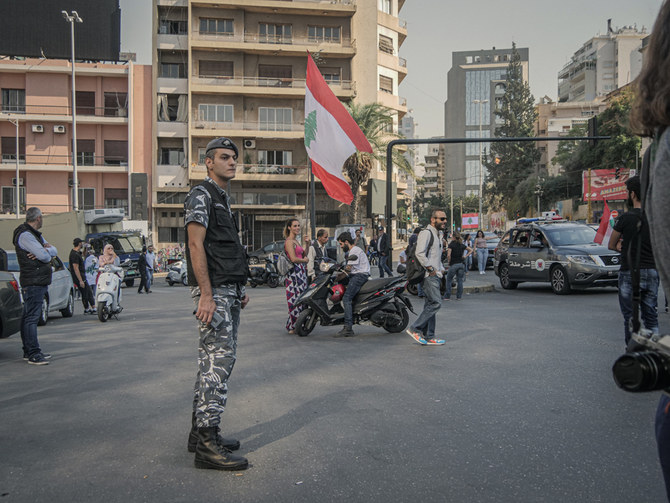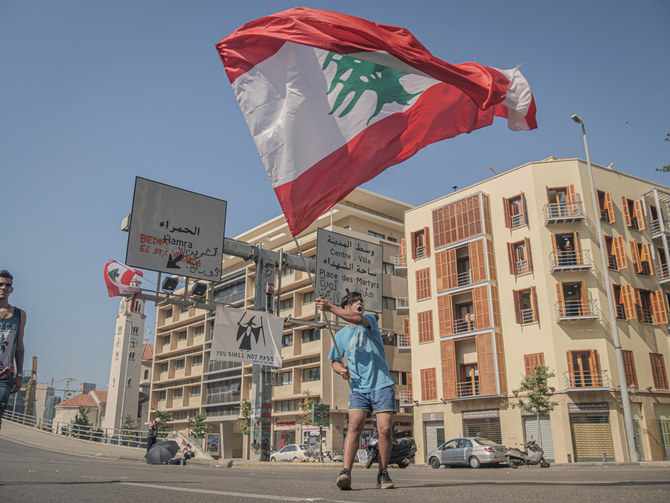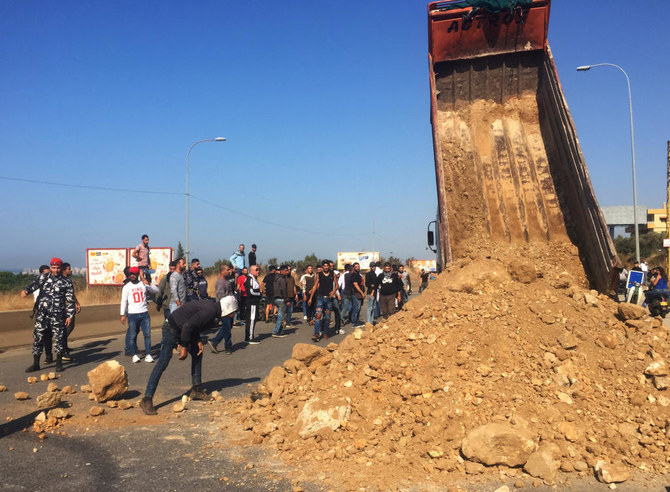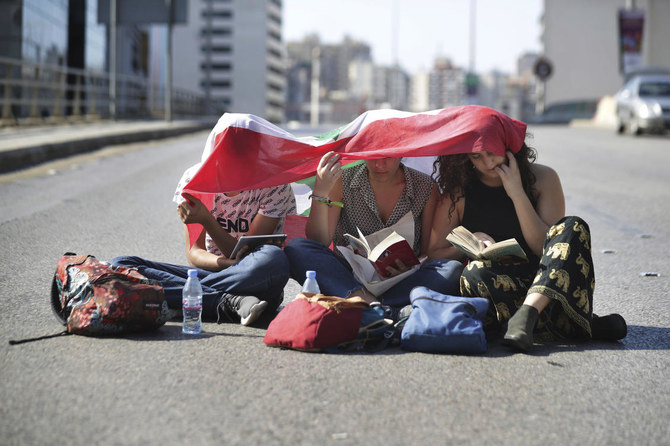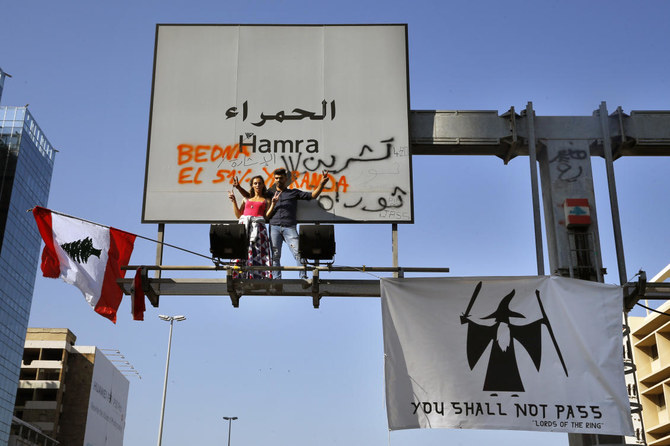BEIRUT: Protesters blocked roads in Beirut and other parts of Lebanon on Monday, pressing a wave of demonstrations against the ruling elite that have plunged the country into political turmoil at a time of acute economic crisis.
The nationwide protests, which were ignited on Oct. 17 by a government proposal to tax WhatsApp calls, led Saad Al-Hariri to resign as prime minister last week. Formal consultations over the formation of a new cabinet have yet to begin.
After Hariri quit, protests had ebbed, roadblocks were lifted and banks reopened for the first time in two weeks on Friday.
Inside “The Egg” - an unfinished cinema that halted construction due to the civil war - which has now been reclaimed by the protestors and turned into a public space for open dialogue and discussions #LebanonProtests https://t.co/jJ9XylTTIt pic.twitter.com/8fUZLCDZcb
— Arab News (@arabnews) November 4, 2019
But in the early hours of Monday, new roadblocks emerged on in Beirut and around the country, snarling major traffic arteries including the main seaside highway north and south of the capital. Schools called off plans to reopen and are now in their third week of closure.
“The slogan is ‘this revolution doesn’t know sleep, form the government today’,” said Hashem Adnan, one of several dozen protesters blocking the Ring Bridge in Beirut, demanding a new cabinet independent of the political elite which protesters accuse of corruption and steering Lebanon into economic crisis.
“People are continuing because you know you can’t trust this regime, any part of it,” he said.
In the northern city of Tripoli, demonstrator Rabih Al-Zein said protesters had escalated again because they do not trust the ruling elite to meet demands for a new administration that will act against corruption.
Footage from the Bliss street road block, students are gathering after classes to voice their views #LebanonProtests https://t.co/jJ9XylTTIt pic.twitter.com/uwq1ymcIG9
— Arab News (@arabnews) November 4, 2019
“We want technocrats (in government) and we want judges to fight corruption, recover stolen money and hold the government accountable,” he said.
Lebanon is grappling with the worst economic crisis since the 1975-90 civil war. With growth around zero percent, a slowdown in capital inflows has led to a scarcity of US dollars and pressure on the pegged Lebanese pound.
Lebanon is one of the world’s most heavily indebted states and is widely seen to be in need of urgent moves that would narrow the government’s gaping deficit and revive confidence.
Though no formal capital controls were announced, customers encountered new restrictions on withdrawals of US dollars and transfers abroad when the banks opened on Friday.
Protesters in the southern city of Sidon mobilized outside government-run agencies and commmercial banks on Monday, forcing them to close, a witness said.
Hariri, who is aligned with Western and Gulf Arab states, continues in a caretaker capacity until the formation of a new government.
Protestors around #Lebanon are getting creative. A picture circulating online, this is how hey decided to block the roads in the #Bekaa last night. #LebanonProtests #LebaneseRevolution pic.twitter.com/IALwd4JUuY
— Luna Safwan - لونا صفوان (@LunaSafwan) November 4, 2019
The prime minister must be a Sunni Muslim under the Lebanese sectarian system of government and President Michel Aoun must designate the politicians with most support among MPs.
Aoun, a Maronite Christian allied to the powerful, Iran-backed Shiite group Hezbollah, has yet to begin the formal consultations with MPs to designate the next prime minister.
On Saturday, the presidency said he was working to resolve “complications” first and would start the consultations soon.
Supporters of Aoun staged a big rally near the presidential palace on Sunday, followed by large anti-government protests in Beirut and other parts of the country later in the day.



